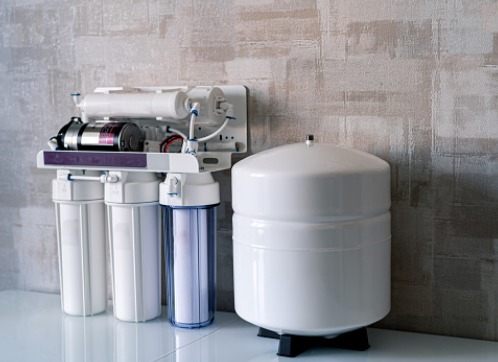Many homeowners begin to consider buying a water filter. A water filter is a good idea, but choosing the right one should be well thought out. It’s worth taking a few minutes to find the right one. You’ll avoid regrets later and get more for your money in the end. Simple, inexpensive air purifiers are more effective than expensive, complicated systems in most cases. The technology behind the brand makes the difference.
Besides, a water filter purifies the water and restores the desired taste, health, purity, and smell for drinking. There are many options available to the buyer, which makes the purchase decision difficult. In this case, it would be best to find some information on how to check for contaminated water over the internet. Below are excellent tips to help you choose a reliable water filtration tool for your house:

Evaluate the Functions
By filtering out impurities, water retains its nutritional value. Water is contaminated with many types of bacteria, viruses, and parasites. Removing impurities does not necessarily mean filtering the water. It is absurd to filter out the impurity and leave the other. Good water filters provide almost perfect purity and eventually remove all contaminants. However, they do not affect the nutritional value of the water. Therefore, you can determine your choice by considering the functions.
Examine the Technologies
Purifying water is as simple as boiling it, going through complex treatment processes like distillation and reverse osmosis. Water is found in soil, reservoirs, rivers, and canals. Different water sources require various technologies. Water filters aren’t just for drinking water. In areas with poor water quality, filtration is necessary. The home filter is located in the main water line of the house and provides filtered water to the entire house. There are also water filtration products for other purposes. Most home water filtration products should have “selective filtration” technology built-in.
Investigate the Methods
Selective filtration is the best method for purifying drinking water because it removes crucial minerals without eliminating impurities. Selective filtration systems with integrated filtration technology use technologies, such as carbon filtration, sub-micron filters, and ion exchange. Different companies may use different combinations of filters. Although the types and combinations of filters may differ, they all affect similar contaminants.
Besides, fundamental water analysis may reveal the presence of predominant contaminants. Consider the number of predominant impurities in the water and choose the brand that offers the highest level of purification. After filtration, make sure the water contains no chlorine, lead, cysts, or THMs. Brands differ in the percentage of purification required for each impurity.
Consider the Cost
 Cost is the foremost consideration. There are essential things to consider than retail price. Even with the most reputable brands, cartridges need to be replaced frequently. Sometimes companies that offer a product at the lowest price charge more than is reasonable for replacement cartridges. Sometimes the cost of replacing cartridges is so high that it is impossible to replace all the cartridges at once. Therefore, it would be best to compare the price of some brands.
Cost is the foremost consideration. There are essential things to consider than retail price. Even with the most reputable brands, cartridges need to be replaced frequently. Sometimes companies that offer a product at the lowest price charge more than is reasonable for replacement cartridges. Sometimes the cost of replacing cartridges is so high that it is impossible to replace all the cartridges at once. Therefore, it would be best to compare the price of some brands.
Inspect the Manufacturer
Certified manufacturer’s literature, whether for drinking water, shower, or whole house filters, provides documentation and certification of performance and capacity. Companies that do not provide documentation or certification are likely overestimating their performance. Companies with different levels of performance in various areas may have different results. It is likely because the filters they use give different results in water purification. It is essential to make sure that the claims are legitimate, even if they have been certified. As technology advances, it is easy to create fake license seals and certifications.
